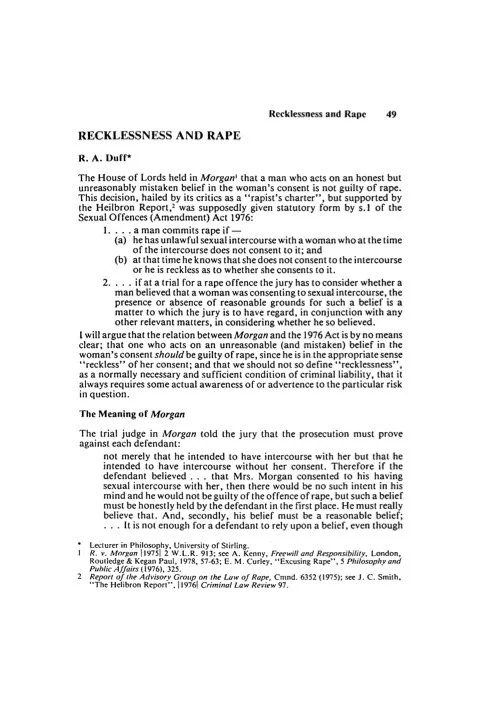By R.A.Duff*
Both the trial judge and the Court of Appeal seemed to base their view that a mistaken belief in consent must be reasonable if it is to secure an acquittal on evidential principles, not on the substantive principle that one who acts on an unreasonable belief really has the mens rea of rape. That mens rea consists, they agreed, in "the intention to do the prohibited act":" it involves an awareness of the woman's lack of consent, and is in principle negatived by any honest belief in consent. But proof of the fact of non-consensual intercourse creates a presumption that the defendant knew she did not consent, and casts on him the evidential burden of adducing evidence to rebut that presumption. "before any issue as to his state of mind can arise for the jury's consideration".' This burden is not discharged by "a bald assertion of belief for which the accused can indicate no reasonable ground"," but only by evidence of a reasonable belief: if such evidence is adduced, the prosecution must prove either that that belief was not honestly held or that it was not reasonable.
The Liverpool Law Review VoJ. III (2) 119811, 16p.



